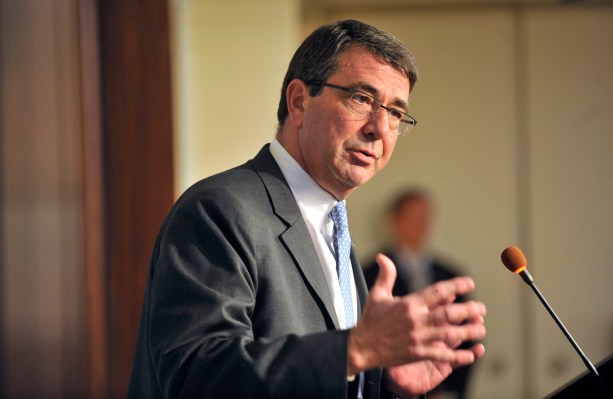U.S. Secretary of Defense Ashton Carter is trying to mend relations with Silicon Valley a year and a half after tensions between the industry and the military exploded when Edward Snowden exposed NSA surveillance efforts using data from Internet giants like Google.
“Renewing our partnership is the only way we can do this right,” Carter said in a speech at Stanford University. “Now, it won’t always be easy. We’ve had tensions before, and likely will again. We shouldn’t diminish that. Those who work in the tech community are no strangers to intense grappling with ideas. The same is true for those who work with me at the Pentagon.”
He announced a new effort called “Defense Innovation Unit X,” which will be a point of partnership based in Silicon Valley and which will be staffed by a mix of active-duty and civilian personnel. They are expected to scout for new technologies and try to find ways for startups to work with the Department of Defense.
The move comes at a time when areas traditionally relegated to heavyweight defense contractors like Lockheed Martin, Raytheon and Boeing like satellite and drone development are being increasingly being handled by privately-held, venture-backed startups or by Google and Facebook, which are trying expand Internet access in the developing world.
Carter also announced a new cybersecurity strategy at a time when tech companies and the government are grappling with encryption standards, with companies like Apple pushing for stronger methods that are so strong that they prevent the company, let alone investigators, from viewing communications. The Obama administration in contrast is pushing for guaranteed legal access to data.
“I think that people and companies need to be convinced that everything we do in the cyber domain is lawful and appropriate and necessary,” he said in a question-and-answer session afterward. “I think the Snowden revelations indicated that we had a difference of view between what we were doing and what people were understanding us to be doing.”
Carter is also establishing a defense branch of the new U.S. Digital Service, which grew out of the technical team that fixed healthcare.gov.
“I’m in the position of needing to attract to military service a generation of people who grew up entirely in the Internet age, whose memories of 9-11 are either faded or dim or non-existent,” he said. “The only way to do that is to make us as open and flexible as their private sector counterparts.”
Carter, who did some post-doctoral work years ago at the Stanford Linear Accelerator Center, pointed to the long history of collaboration of between the Defense Department and Silicon Valley. Vint Cerf, who is considered one of the ‘Fathers of the Internet,’ was a DARPA researcher, while GPS began as a defense project. Long before the personal computer and the commercial web exploded, defense research funding helped cement Stanford’s reputation as an engineering hub in the post-World War II period.
But Carter said that times have changed and that the defense department’s culture and norms need to match the industry’s to attract talent.
“We can’t have Industrial Age institutions in an age when young people need choice and flexibility. They want movement. They want mobility,” he said. “That’s why I’m so intent on increasing the permeability of the wall between the government and young people and
the private sector.”
Carter is expected to visit Facebook later today and attend a roundtable at Andreessen Horowitz.
